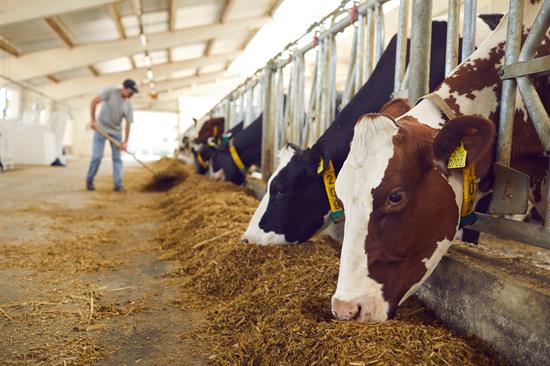Press Releases
Pingree, Baird, Thune, Brown Reintroduce Bipartisan, Bicameral Bill to Expand and Strengthen Local Meat Processing CapabilitiesThe Strengthening Local Processing Act will increase options for local livestock and poultry producers and help increase resiliency and diversification of the meat processing system
Washington,
February 8, 2023
U.S. Representatives Chellie Pingree (D-Maine) and Jim Baird (R-Ind.) and U.S. Senators John Thune (R-S.D.) and Sherrod Brown (D-Ohio) plan to reintroduce legislation to support small meat and poultry processors. The bipartisan, bicameral Strengthening Local Processing Act will diversify and make the U.S. meat processing more resilient by giving local livestock and poultry producers more options will increase processing options for local livestock and poultry producers. The legislation is co-sponsored by U.S. Sens. Kevin Cramer (R-N.D.), Angus King (D-Maine), Jeff Merkley (D-Ore.), Mike Rounds (R-S.D.), and Tina Smith (D-Minn.). “One of the top concerns I hear about from livestock producers in my district is how difficult it is to access USDA processing facilities. Their livelihoods depend on having somewhere to take their animals, but under the current system, their options are severely limited. Chefs, retailers, and consumers want to buy locally raised meat, and they’re frustrated by how difficult it’s become to get it,” said Pingree. “My Strengthening Local Processing Act will increase processing, enhance opportunities for local producers, and help small slaughterhouses and butchers grow their businesses—delivering the quality, locally-raised meat and poultry consumers expect at the store.” “Hoosier farmers appreciate having alternatives for selling their livestock and the opportunity to have a custom process for niche markets they may personally develop,” said Baird. “Large corporations are able to move large volumes of processed meats and poultry through the food supply chain; this legislation provides local producers the tools they need to be successful and local meat processors the ability to thrive and drive greater competition in this otherwise challenging and exclusive market.” “South Dakota’s producers work hard to raise high-quality livestock, and it is imperative that we invest in expanding processing capacity to help them meet consumer demands,” said Thune. “My bill would support small meat and poultry processors’ operations and provide more local marketing opportunities for livestock producers.” “If we’re serious about fighting consolidation in the livestock sector, we need to invest in Ohio’s small processors that will help create jobs in their community making our supply chain more resilient and bring down prices,” said Brown. “This legislation will bolster local production while providing education and training assistance to support the next generation of local processors across Ohio.” Under federal law, farmers or ranchers must send their animals to one of a limited number of U.S. Department of Agriculture (USDA) or state-inspected slaughterhouses in order to sell individual cuts of locally raised meats. These slaughterhouses are sometimes hundreds of miles away and there are far too few of them across the nation. As a result, many smaller meat and poultry processing plants are booked out for months, and small farms are unable meet new demand due to a lack of processing capacity. The Strengthening Local Processing Act will increase the federal cost share for state facility inspections from 50 to 65% and for Cooperative Interstate Shipment (CIS) facilities from 60 to 80%, thus encouraging more states to operate state inspection programs and participate in CIS. There are currently 27 states that operate a state inspection program and eight states that participate in CIS. The legislation would create a competitive grant program for small and very small establishments, state inspected facilities, custom exempt facilities, or new small-scale slaughter facilities to help increase processing capacity and grow resiliency. It would also create two new grant programs for meat processing workforce training – one for colleges, universities, nonprofits, worker training centers, and others to establish or expand meat processing training program and one for small and very small establishments or nongovernmental organizations to offset the cost of training new meat processors. ### |

